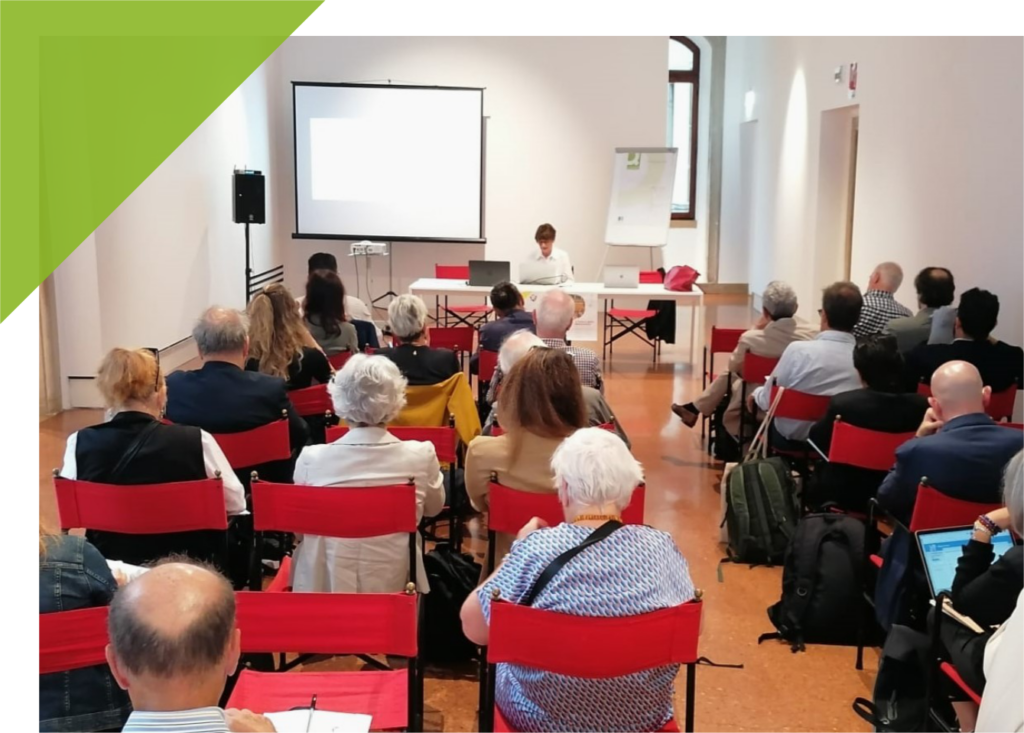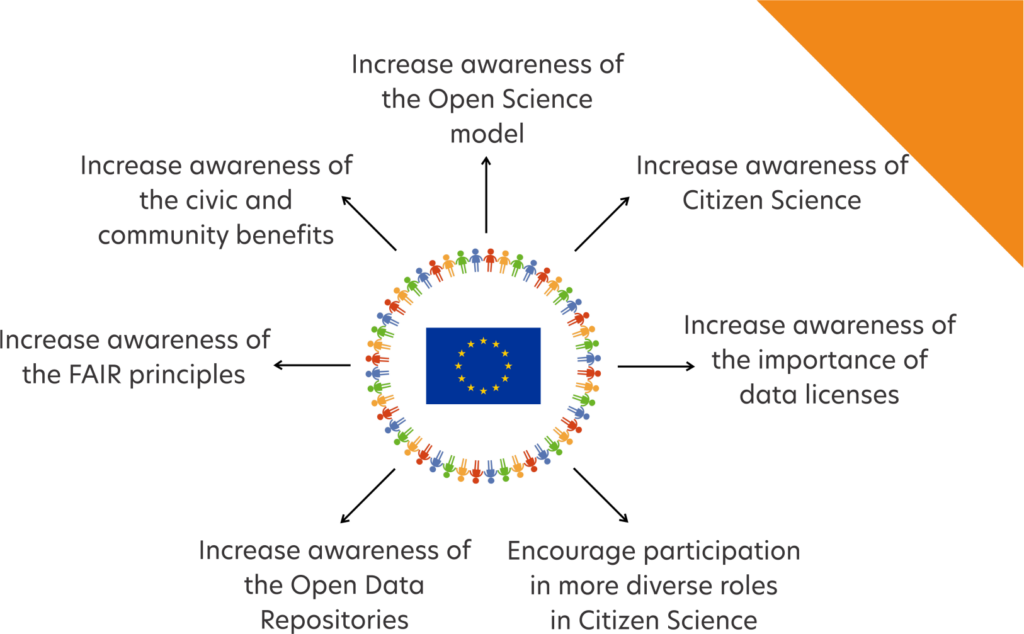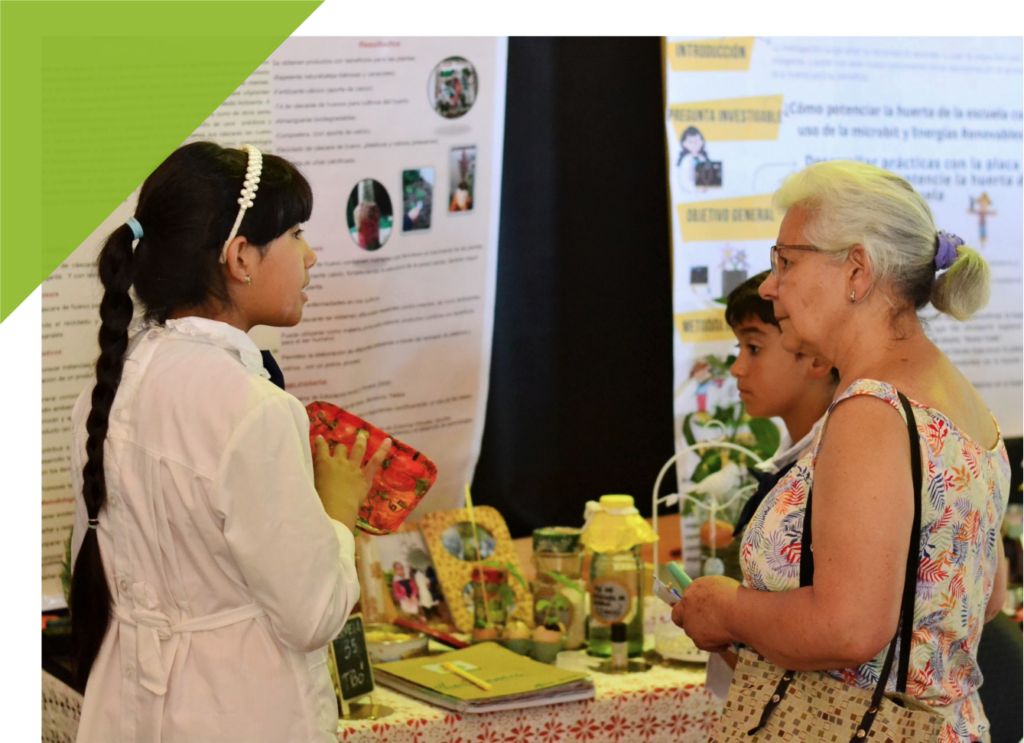Policy Brief Series
Promoting Deliberative Participation in Europe
The Series
We are excited to share our ISEED Policy Brief Series on Promoting Deliberative Participation in Europe. The series consists of nine Briefs, each formulating a set of policy recommendations based on ISEED research results on the roles of science, technology and the importance of citizen engagement in democratic deliberation.
The Series aims to thus make key ISEED results available and usable by policy stakeholders in Europe.
ISEED Briefs are launched on a weekly basis, starting from Thursday April 4th 2024, and for the following nine weeks, culminating in a full collection of the Brief Series. You can access our published Briefs through the links below.
The Series is edited by Sophia Efstathiou.
Policy Briefs
1) Valuing Citizen Engagement in Science Governance
Chiara Lovati and Eleonora Montuschi
Release date: 4th of April, 2024

In this policy brief, ISEED proposes an inclusive and participatory approach to decision-making modeled on Citizen Engagement in different forms of science-driven projects.
The conclusions of our research emphasize that the governance of science should embrace a range of interests and contributions coming from alternative styles of scientific research.
To achieve this, we suggest ways for overcoming a naïve model of neutral and top-down type of expertise and supporting models of decision-making which also includes the contribution of citizens as providers of potentially valuable knowledge.
Click here to read the full brief!
2) Ensuring Long Term Functioning of Citizen Observatories
Michael O’Grady
Release date: 11th of April, 2024

In this policy brief, ISEED highlights the significance of Citizen Observatories, conceived as community-based networks that monitor and influence decision-making and policies on environmental, urban, and climate issues by collecting data.
These observatories mark a departure from traditional citizen science, aiming to establish enduring, community-driven scientific efforts and bottom-up science-based initiatives.
We propose viewing the work of Citizen Observatories as a chance to diversify and improve inclusivity within knowledge-driven democratic initiatives across Europe, while simultaneously boosting citizen engagement and scientific literacy.
Click here to read the full brief!
3) Supporting Health Data Cooperatives in Europe
Niccolò Tempini
Release date: 18th of April, 2024

In this policy brief, ISEED introduces an innovative method for empowering individuals in the management and use of their personal health data: Health Data Cooperatives (HDCs).
We analyse how HDCs can better promote a culture of data awareness and accountability, facilitating inclusivity and the active engagement of patients in their health management.
HDCs hold the potential to build a sense of community and purpose among participants once data responsibility and ways to ensure the continuous support of these community-centric initiatives are in place.
Click here to read the full brief!
4) Enhancing Understanding of Science Through Science Clubs
Agata Żbikowska and Magdalena Roszczyńska Kurasińska
Release date: 25th of April, 2024

In this policy brief, ISEED proposes tackling low trust in science and lacking science literacy, as both can pose risks to democratic governance and foster populism.
To address this issue, ISEED suggests creating educational hubs in the form of Science Clubs, which are currently active in Uruguay as non-formal learning spaces for school-age children.
These hubs aim to build a scientific culture by involving community members in scientific projects through various research methodologies such as questionnaires and experiments.
Participation in such activities could enhance science literacy, support democratic processes, and foster collaborative discussions among children, youth, and teachers also in Europe.
Click here to read the full brief!
5) Technology Availability and Digital Literacy
Magdalena Roszczyńska Kurasińska
Release date: 2nd of May, 2024

In this policy brief, ISEED discusses how citizen science, as a form of social innovation, hinges on the widespread adoption of specific technologies, which can facilitate data collection and management, like mobile phones.
To be effective, a significant number of individuals must embrace these technological solutions. The goal is to cultivate familiarity with the technologies needed and to avoid technology becoming a barrier to participation.
ISEED, thus, points out that citizen science projects must not only engage people with the project’s issues but also encourage folks to adopt new technologies. The success of projects using mobile data collection technologies heavily depends on users’ attitudes towards the technologies.
Click here to read the full brief!
6) Identifying Constraints to Online Participation
Giuseppe A. Veltri and George Gaskell
Release date: 9th of May, 2024

In this policy brief, ISEED examines preferred methods for engaging citizens in the discussion of scientific topics and the barriers that deter people from participating in these discussions.
ISEED presents an analysis of the findings from an online survey that gathered data on citizen-science interactions, with a particular focus on topics of global warming and climate change.
The study compared responses to two sources— a politician and a scientist — and two types of messages: rational and emotional. It sought to understand respondents’ preferences for participation methods and the obstacles they face in engaging online in dialogues between citizens and science stakeholders.
Click here to read the full brief!
7) Encouraging Diverse Voices: Insights from Polish Media and Twitter Discourse on Green Transition
Bogna Gawrońska-Nowak, Piotr Lis, Olha Zadorozhna
Release date: 16th of May, 2024

In this policy brief, ISEED examines the impact of climate change discourse and political polarization on democratic regimes. It highlights how Twitter debates about Poland’s participation in the European Green Transition contribute to social and political divisions.
These online discussions (such as on Twitter), often dominated by simplistic slogans, tend to be more polarized than those in professional media.
ISEED recommends engaging with public sentiments to develop strategies that encourage inclusive and informed dialogue on climate issues. Considering users’ perspectives on technology is crucial for the successful adoption and implementation of mobile data collection technologies.
Click here to read the full brief!
Coming up next!
- Encouraging Diverse Voices: Insights from Polish Media and Twitter Discourse on Green Transition
- Working with Rationality and Emotions in Democratic Deliberation
- Proposals to Enhance Citizen Participation in Policy
- Promoting Deliberative Participation in Europe: Insights from ISEED
Policy Brief Authors: Adriana Dimova, Agatha Żbikowska, Bogna Gawrońska-Nowak, Carolina Llorente, Chiara Lovati, Eleonora Montuschi, Gema Revuelta, George Gaskell, Giuseppe A. Veltri, Magdalena Roszczyńska-Kurasińska, Michael O’Grady, Niccolò Tempini, Olha Zadorozhna, Piotr Lis, Sophia Efstathiou
Series Editor: Sophia Efstathiou
Designer: Sarah Santos
Images: own source, Chris Liverani, Christin Hume and Red Zeppelin on Unplash
Last review: 15/05/2024


